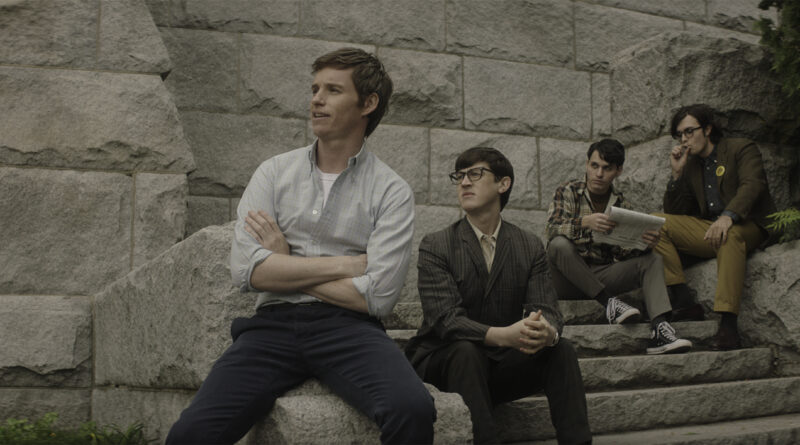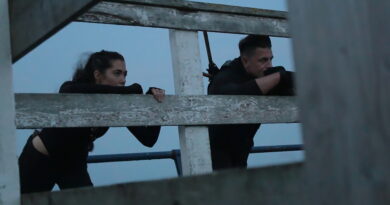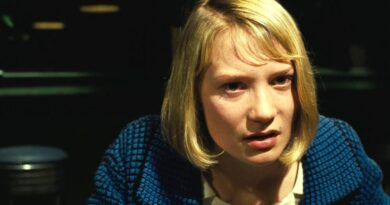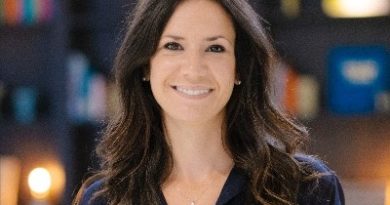Eddie Redmayne, Sacha Baron Cohen and Jeremy Strong star in The Trial Of The Chicago 7
Spielberg took notice. With the state of the country’s cultural and political climate polarised following the 2016 election, the time seemed right for him to resurrect the story of a group of defiant young Americans who to stood up for their beliefs at any cost. According to Spielberg, who would be better to direct the movie now than Sorkin himself?
The goal in telling the story of the Chicago 7 was not to simply and precisely recount the events that occurred 50 years ago. “It’s not a documentary, it’s not intended as journalism,”
Sorkin explains. “This is a painting, where journalism is a photograph.” The strength and timeliness of Sorkin’s screenplay then drew acclaimed filmmaker Marc Platt to produce along with Matt Jackson and Stuart Besser, who had produced Molly’s Game, and Cross Creek’s Tyler Thompson.
Says Thompson: “CAA came to us with this script by Aaron Sorkin about racial inequalities, injustices and protesting the calcified establishments of our government — how could you not want to be a part of that? It was one of the most trying movies we have ever put together as a company, as well as a producing team between myself, Marc Platt, Matt Jackson and Stuart Besser. Everyone rolled up their sleeves and it was far greater than anything we could have ever imagined.”
As strikingly similar as 1968 and 2016 seemed at the time, however, the parallels had nothing on what the summer of 2020 would bring. As the Black Lives Matter movement and protests against police brutality continue to sweep across a nation wearied by a yearslong whiplash newscycle as it readies itself for a pivotal election, it would be easy to think the script changed to mirror the times.
“The script didn’t change to mirror the times, the times changed to mirror the script,” says Sorkin.
“America, Love It or Leave It was a slogan that came back in vogue. And just as Fred Hampton was killed by the police in the middle of the trial, George Floyd, Rayshard Brooks, Breonna Taylor, and countless others are similarly tragically killed. Suddenly protestors are met with tear gas, riot clubs, and federal troops.
“Watching the footage every night of protestors clashing with police, it looks exactly like 1968. Even the intramural struggle between the more moderate and more progressive wings of the Democratic Party seem to mirror the friction between Tom and Abbie.”
History, as they say, has a tendency to repeat itself. Unless, of course, we learn from it by telling its most salient stories.
The Trial of the Chicago 7 begins with a primer showing a nation coming off the rails before introducing the eight antiwar activists as they prepare to hold demonstrations in Chicago.
The story then flashes forward to 1969 as John Mitchell, the Attorney General for newly-elected President Richard Nixon, hand-picks young attorney Richard Schultz to lead a case against the activists.
Black Panther Chairman Bobby Seale, who merely gave a speech during the demonstrations, is added to the list of defendants indicted for conspiracy and for crossing state lines to incite a riot, charges that could lead to 10 years in prison.
“That began one of the craziest trials in American history,” says Sorkin. “I think what Aaron has done is just brilliant,” says Producer Matt Jackson.
“He tells the present day story but flashes back to the relevant moments that lead up to a question on the witness stand. The story becomes a thriller that makes you want to keep going.”
Sacha Baron Cohen
Early on, when he became aware that a film of the Chicago 7 was being developed, award-winning actor Sacha Baron Cohen reached out about the role of Abbie Hoffman. “I was always interested in Abbie Hoffman,” explains Baron Cohen, creator of satirical characters such as Borat and Ali G.
“When I was in university my undergraduate thesis was about radical Jews in the civil rights movement in the ’60s. I found out that a lot of the Jewish radical students who went down to Mississippi to campaign for voting rights for the African American community then went on to other radical causes. One of those guys was Abbie Hoffman.”
One of the founders of the Youth International Party, or the Yippies, Hoffman was raised in Worcester, Massachusetts, studied at Brandeis University, and became one of the most visible counterculture protestors of the era, having performed theatrical stunts like throwing dollar bills onto the floor of the New York Stock Exchange and leading a group to “levitate” the Pentagon.




